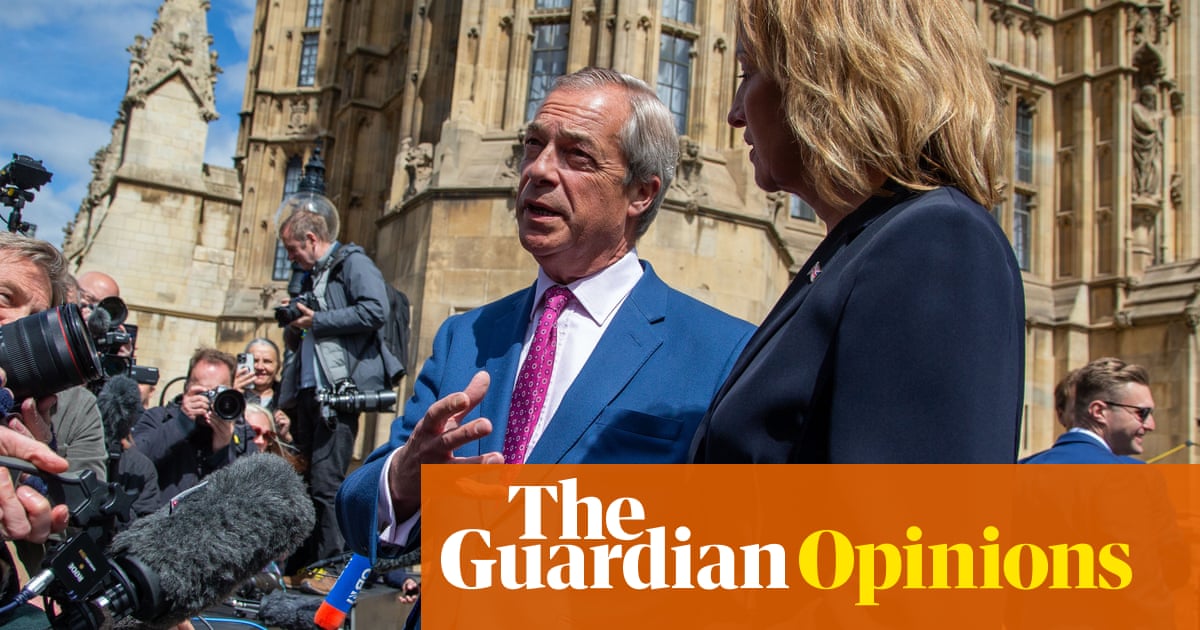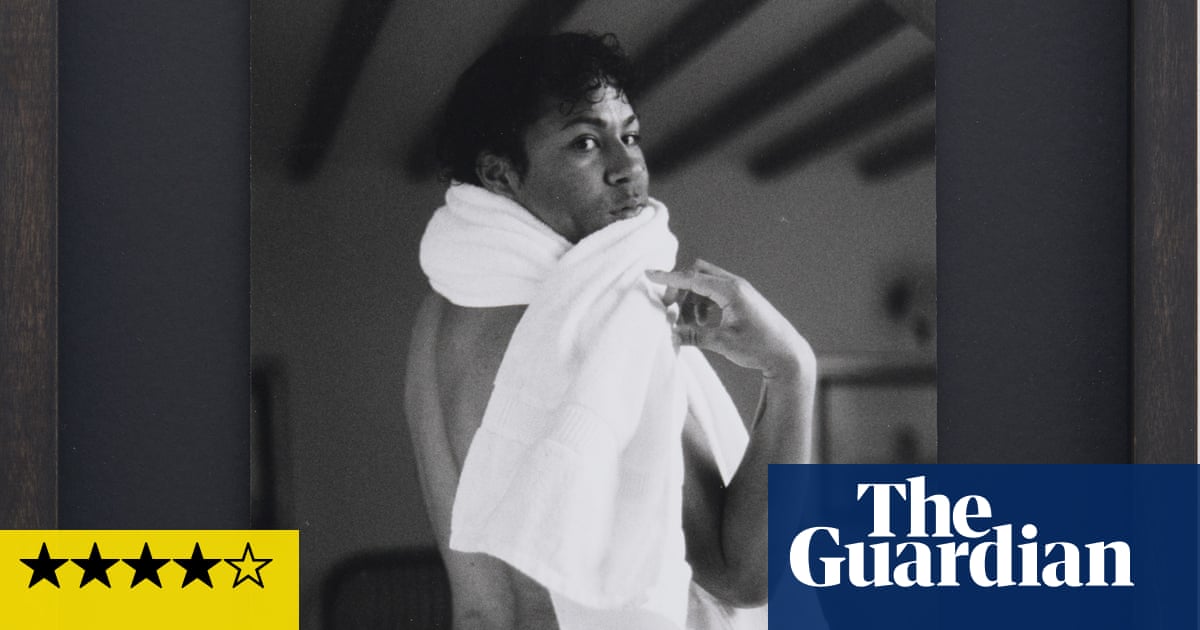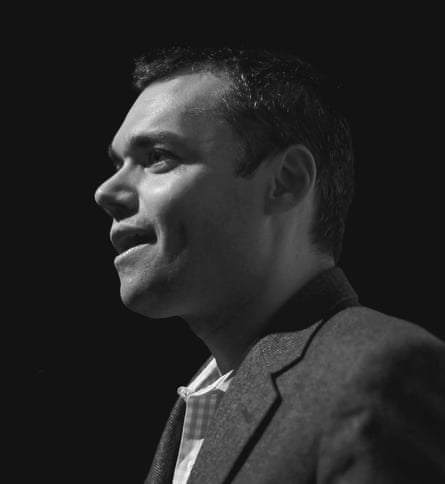
Peter Beinart has spent a lifetime talking about Palestine and Israel. In the early 2000s he was regarded as among Israel’s most prominent American defenders. He has since broken with just about every tenet commonly associated with Zionism – from rejecting the argument that Israel can be simultaneously democratic and Jewish to arguing that Palestinian refugees must be allowed to return to historic Palestine. Few people have moved as far in so short a time.
A professor of journalism and political science at the City University of New York, Beinart once edited the New Republic and is now an editor-at-large at Jewish Currents and a contributing opinion columnist for the New York Times. He has built a reputation for being an incisive writer and public intellectual, with a knack for admitting when he’s wrong – on Israel, his early support for the Iraq war and what he has described as his previous complicity in tolerating workplace sexual harassment.
In Beinart’s latest book, he appeals to his fellow Jews to grapple with the morality of their defense of Israel. The book, titled Being Jewish After the Destruction of Gaza: A Reckoning, begins with a “note to my former friend”, with whom he has broken over the issue. “By reading these words, you have agreed to walk with me,” he writes. “I hope to lure you beyond established boundaries.”
Beinart relies on Jewish texts and draws lessons from South Africa, where his family is from, to confront Zionism and what he sees as complicity from the American Jewish establishment in Palestinian oppression. He argues for a Jewish tradition that has no use for Jewish supremacy and treats human equality as a core value.
I spoke with Beinart before the declaration of a ceasefire earlier this month. I followed up to ask his view on the development.
Ahmed Moor: Hi, Peter. We’ve all been casting about for resources and things to help us understand how the world has changed after Gaza. Your book aims to address some of that but, as the title states, it’s also about “being Jewish”. So who is the audience for the book?
PB: First and foremost, I suppose it’s written for my community, my friends and even my family. I live inside a pretty traditional Jewish world. And I feel like there is a kind of pathology that exists in many Jewish spaces, among people who in other aspects of their lives are humane and thoughtful. Yet when it comes to the question of Gaza, and more generally the question of Palestinians and their right to be free, a certain set of blinders come down.
My hope is that I can get them to see that something has gone very profoundly wrong in the way we think about what it means to be Jewish. I felt like I needed for my own sanity to write something which addressed this moral catastrophe in the hopes that maybe I will change some people’s minds. Maybe there is also a whole group of younger Jews who are themselves profoundly alienated and bewildered and deeply angry. There’s a kind of moral, cultural, even theological wreckage that Jews now have to face. I want to help them think about how they rebuild.
AM: I’m on the outside, but from where I sit it appears that Jews are quite divided, both politically and religiously. Yet in the book you write as though you’re speaking to a single community. What are the values that anchor that community – and what happens when Israel enters the mix?
PB: That’s a big question. What’s complicated about Judaism is that it is a religion with a universal kind of message like Christianity or Islam, but also embedded within Judaism is the metaphor of family. In the book of Genesis, you have the story of a family that in the book of Exodus becomes a people or a nation. In some ways, being Jewish can be analogous to being both Catholic and Italian, in the sense that proudly atheistic Jews still feel very intensely Jewish.
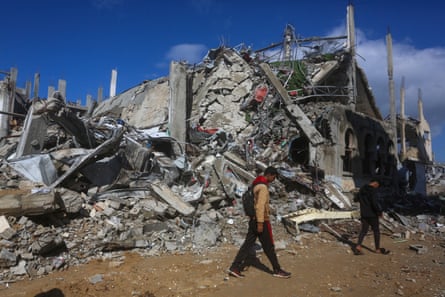
It’s one thing for Jews to feel these bonds of communal solidarity outside of the state framework, when they often had to depend on one another while living in states that were dangerous to them. But when you take a very powerful state and you inject that with this notion of uncritical solidarity, it leads to a series of rationalizations as that state commits what I think can be rightly called a genocide. Something terrible has gone wrong because Judaism also has a moral message. I feel like that gets lost in all of this.
I think more relevant to the book is the question of how we tell a story about what it means to be Jewish that recognizes our obligations to one another, but also never loses sight of the fact that the first people created according to Torah are not Jews. All human beings are created in the image of God, and that precedes the Jewish story.
What Israel has done in Gaza is the most profound desecration of the central idea of the absolute and infinite worth of every human being. And yet the organized American Jewish community acts as if Palestinians in Gaza have essentially no value. Their deaths are dismissed on the flimsiest of pretexts. These people are basically saying that the state has absolute value, but the human beings who live in this state, if they have the misfortune of being Palestinian, don’t have value.
AM: One of the major themes of the book is complicity. How do you perceive complicity with what Israel is doing, and has been doing for decades, within American Jewish life?
PB: I think the organized American Jewish community, especially since 1967, has been built around unconditional support for Israel as a central feature of what it means to live a Jewish life. You support the basic structure of the state even though the state is fundamentally unequal and fundamentally oppressive when it comes to Palestinians. It comes in many forms. It can come in participation in a group like Aipac, which is pressuring the government to maintain unconditional US support. It can come in more symbolic ways, like a prayer for the Israel Defense Forces which is common in many American synagogues. It also comes through the unwillingness to engage with Palestinians.
Most American Jewish institutions – schools, synagogues, camps, whatever – don’t bring Palestinian speakers in to actually give people a genuine understanding of what Zionism looks like from the standpoint of its victims. These are all forms of complicity.
AM: I’ve been reading your work since at least 2008. I wrote for you in 2012 at the Daily Beast when you were still recognized as a prominent liberal Zionist voice. Over the years, you’ve shown a willingness to change your mind and to do it publicly. Not a lot of people are willing to publicly admit they were wrong. Why do you think that is?
PB: I always feel a little embarrassed when people ask me about these changes in a way that allows me to look good. The truth is that there were a lot of people who knew things much earlier that I took a long time to learn. Obviously many of them are Palestinians from whom I’ve learned, but there are also Jews and others.
My learning process has been slow partly because of fear. I think perhaps that I was too comfortable living in an environment where I was not really exposed to many things, a relatively privileged and cloistered existence. But I’ve also always been afraid of what the consequences would be, career-wise and interpersonally, if I became too radically out of step with people around me. It’s still something I worry about all the time.
For me, there was a process of unpeeling, like an onion, that began when I first went to the West Bank more than 20 years ago. It’s one thing to know in an abstract way that it’s not great for Israel to be occupying people. And I kind of knew that, and I supported two states, but there was always a notion of wanting to give Israel the benefit of the doubt. But the more one looked, the more that was just unsustainable.
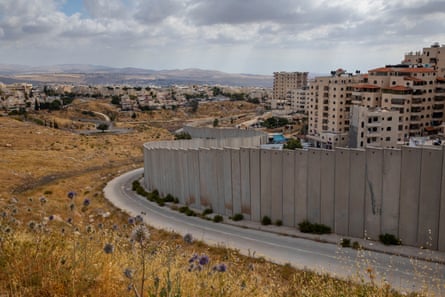
I was also forced to confront the degree to which I had dehumanized Palestinians. I didn’t think of myself as someone who did that. But I realized that I wasn’t engaging with Palestinians as human beings. I was engaging with Palestinians as a kind of an abstract group of people about whom I was making various judgments.
There was a real shock that came with engagement with ordinary people and the realization that these were human beings who were enduring these things that I and the people around me would never be willing to tolerate. I was able to shed the preconceptions that I was raised with, that so many Jews are raised with, about Palestinians, that they have a tendency towards violence. I was able to unlearn those things. So that has been for me an experience of liberation.
That’s part of what the book is about: I want other Jews to have that experience of liberation because first of all it means that we can stop being complicit in these horrors, but also we don’t have to carry the burden of this fear based on dehumanizing and often racist views.
AM: This is a really thorny topic, but a lot of people see overt displays of traditionally Jewish symbols as signifiers of Zionism, which is militaristic and chauvinistic in my lived experience as a Palestinian who has spent time in both Gaza and the West Bank. For example, there was that infamous story of Israeli soldiers branding the Star of David on to a detainee’s face. So how do you unwind the association of Zionism with Judaism?
PB: Zionism has this very strange relationship with Judaism. In one way it was a rebellion against Judaism. Normative notions of Jewish law said that Jews pray for the Messiah to come and once the Messiah comes, Jews will return to what we call the land of Israel. But then, in an era of nationalism and imperialism in the late 19th and early 20th centuries, the Zionist movement said: “We are going to have our own nationalist project.” In the beginning the vast majority of Jewish religious authorities were hostile to Zionism. But then Zionism also plays on these traditional notions in Jewish texts of a connection to this place called the land of Israel.
But now, Zionism in the form of Jewish ethnonationalism risks swallowing Judaism or becoming so enmeshed with it that the two cannot be distinguished. The Israeli flag is designed to look like a tallit, the prayer shawl that Jews wear when they pray. It has the star of David, a traditional Jewish symbol. The menorah is also used in Israeli symbols.
Jews want opponents of Zionism to make this distinction – I don’t want people to go up to a Jew on the street who is wearing a kippah or some Jewish symbol and make that person responsible for what the state of Israel does.
Yet at the same time, Jewish leaders in America are constantly conflating these two things by saying Zionism is inherent in Judaism. On the one hand, they say, supporting the state of Israel is inherent in being Jewish. On the other, they’re asking the anti-Zionist or pro-Palestine activist to live up to a standard that they themself violate.
Many American Jews will decide they want to be Zionists. They will decide they want to support the state of Israel. I may argue with them. They have the right to make that choice. But it is not an inherent part of being Jewish.
AM: You write: “Hostility to Israel has become so pervasive in progressive circles that Zionist students sometimes feel like ideological pariahs.” How should the Palestinian rights movement interact with Zionist students, especially since the overwhelming weight of institutional opprobrium is directed at anti-Zionist students?
PB: I wrestled with how to write that chapter a lot. I think some Jewish students arrive at college from an environment in which Zionism and support for the state of Israel is normative. It’s what they have experienced, what they have learned. They’ve probably had almost no interaction with Palestinians – no understanding of what Zionism looks like from the standpoint of its victims. So then the question is: how do you engage with those students?
I think there is a great opportunity for education. Engaging with those students, talking to them, trying to create environments where they hear Palestinians and they hear scholarly work on Israel/Palestine is a better path than the path of exclusion. I don’t think the path of exclusion – basically saying you’re the equivalent of a white supremacist, we will not talk to you – is antisemitism. But I don’t think it is the most effective way of bringing about the change that we want.
I think I can understand that it’s not easy for a Palestinian to sit down with a Jewish student and explain to the Jewish student why they are fully human and why they’re fully deserving of equality. In the same way that I think Black Americans often don’t really appreciate having to do that with white Americans. I understand that not everyone is going to want to play that role, but at the very least I don’t think people should shut down those spaces.
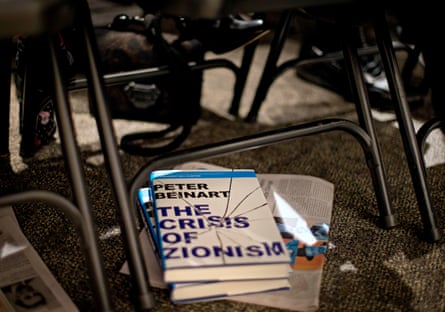
It’s a strategic argument. I don’t think that exclusion is the best way to bring about the change that we want.
AM: Since we first spoke, a tenuous ceasefire has come into effect. How do you interpret its terms and how it came about?
PB: To me the ceasefire shows that US pressure works. I’m glad that some hostages will be released and that Palestinians in Gaza will get some reprieve from the bombing and some additional aid. But even though Israel destroyed Gaza, Hamas will remain there, because the Palestinian problem is a political problem, not a military one. Israel never had a strategy, and will likely go back to destroying Gaza.
AM: In your book, you end on a hopeful note, writing that Jews can contribute to humanity by “liberating ourselves from supremacy so, as partners with Palestinians, we can help liberate the world”. Do you really draw hope at this time?
PB: I don’t think that hope is something one draws from material circumstances. Optimism is something you look for evidence for. I have none of that. I see Israel moving towards an American-style solution to the Palestinian question. In the 19th century, the American solution to the native population was to destroy their societies so that they couldn’t function as a political entity.
But hope comes from wherever it comes from. It’s just something that human beings need. Like we need oxygen. For me, maybe it comes from belief in God. I don’t know. I have glimpsed, myself, little episodes of this potential liberation as a child of South Africans. Imagine if this story of Palestine and Israel, which is now a story of unbelievable horror, of genocide, of apartheid – if it were instead a story of collective liberation. I do really believe in my soul that Israeli Jews and Palestinians could live together in full equality with a true process of reconciliation and full refugee return and historical justice that would unleash things that would be miraculous for people around the world.
Will I see it? I have no idea. But that’s the dream.
-
Ahmed Moor is a writer and fellow at the Foundation for Middle East Peace. He is a plaintiff in a lawsuit that charges the US state department with circumventing the law to fund Israeli military units accused of human rights abuses
-
Peter Beinart is editor-at-large of Jewish Currents and professor of journalism and political science at City University of New York. Being Jewish After the Destruction of Gaza: A Reckoning is out on 28 January

.png) 3 months ago
34
3 months ago
34







